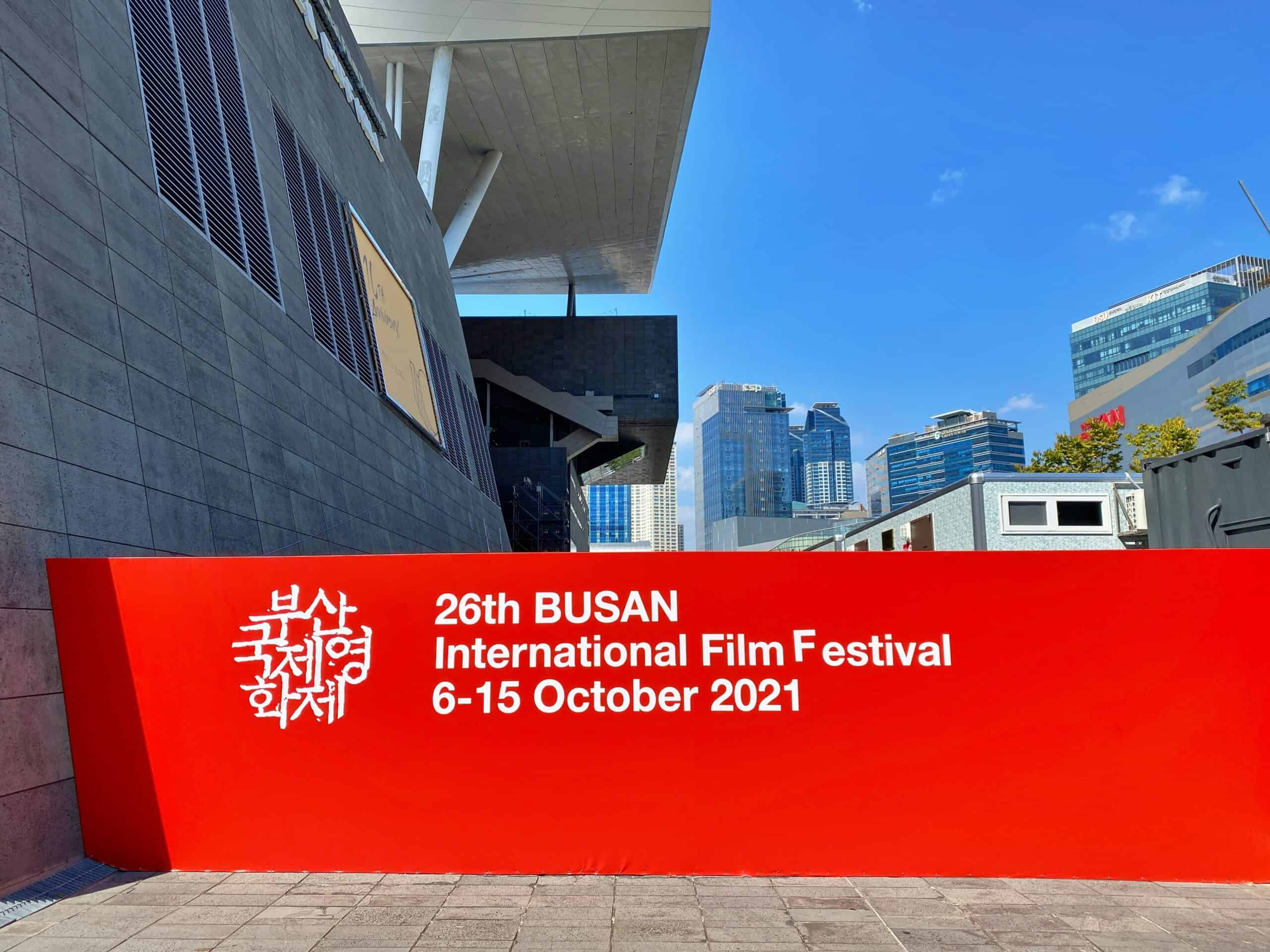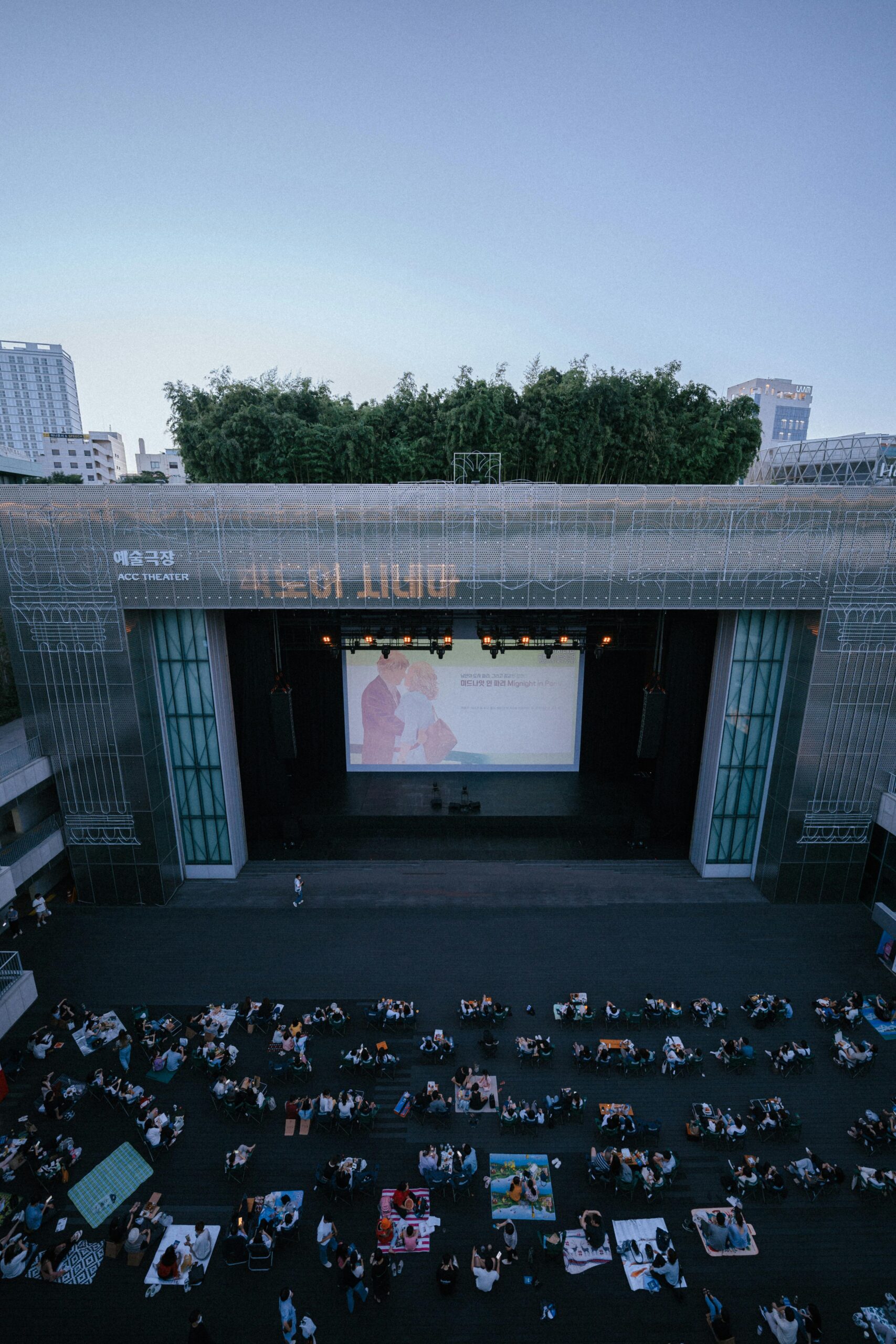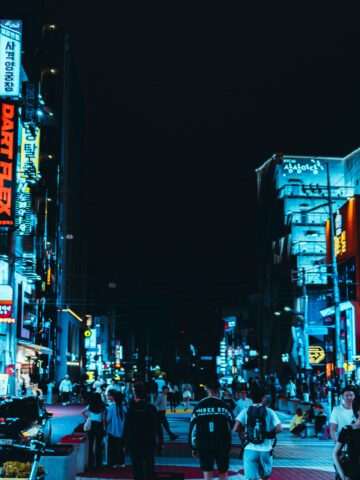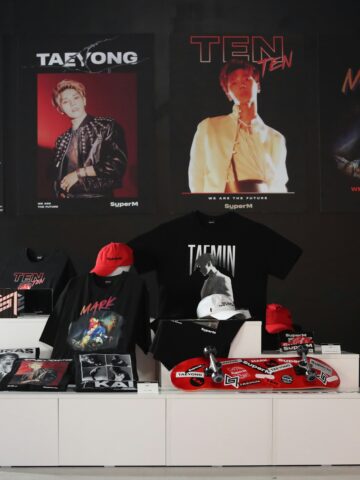The Busan International Film Festival (BIFF), known as one of the most significant film festivals in Asia, is a remarkable event that draws film lovers from all over the world to Busan, South Korea.
BIFF offers a unique chance to explore a diverse range of films, from blockbuster hits to independent gems, attracting film enthusiasts eager to catch the latest cinematic trends and meet filmmakers from around the globe.
Started in 1996, BIFF has grown into an essential platform for showcasing Korean and Asian cinema, featuring premieres, award ceremonies, and hosting panels, workshops, and markets that foster international collaboration each year.
If you've never been to Busan, attending BIFF is a great reason to visit this vibrant city. From the stunning beaches of Haeundae to the lively BIFF Square, there's so much to explore.
The festival atmosphere lights up the entire city, making it a perfect time to experience the best of Busan's culture and hospitality. For more details, check out the official BIFF website.

Jump to:
⌛ History and Overview
Founding of the Festival
The Busan International Film Festival, founded in 1996 in Busan, South Korea, aimed to promote new cinematic talent and showcase innovative works from across Asia, quickly gaining popularity for its strong focus on introducing Asian cinema to the global stage.
BIFF began with a relatively modest setup but quickly gained attention for its fresh and diverse content, providing a platform for up-and-coming directors and actors to reach a wider audience and establish its reputation early on.
Evolution over the Years
Since its inception, BIFF has grown significantly in size and influence and has expanded to include various programs, such as the Asian Film Market and the Asian Project Market. These initiatives have made BIFF a central hub for the film industry, serving as a place for networking and business opportunities.
The number of films and participating countries has also increased. For example, in 2022, the festival screened 353 films from 71 countries. This reflects BIFF’s dedication to showcasing a diverse range of works and its growth in international recognition.
Significance in Asia and Globally
BIFF has become known as the "Cannes of Asia" due to its prestige and influence, making it a key event for filmmakers looking to debut their work and for film enthusiasts who want to discover new movies.
Besides its industry impact, BIFF has also boosted Busan's cultural and economic status. The city's brand value has increased as it became a cornerstone of Asian visual culture, drawing visitors and professionals from all over the globe.

📽️ Festival Highlights
Opening Ceremony
The opening ceremony of the Busan International Film Festival, which is held at the Busan Cinema Center, kicks off the event with glitz and glamour, gathering filmmakers, actors, and industry professionals from around the world for a dazzling red carpet entrance, where celebrities showcase stunning outfits.
The event often includes speeches by prominent figures and an opening film screening. This year, attendees can expect exciting performances and a showcase of global cinema trends.
Gala Presentation
The Gala Presentation, one of the most anticipated parts of the festival, features a selection of highly anticipated films—many of them world premieres—and is renowned for showcasing movies from celebrated directors while attracting star-studded audiences.
Films in this section are carefully curated to showcase significant works from around the globe, offering attendees the exclusive opportunity to watch them before their theatrical release, making it a must-see event for movie enthusiasts.
New Currents Section
The New Currents Section is dedicated to discovering new talents in Asian cinema, showcasing works by up-and-coming directors from across the continent to introduce fresh voices and innovative storytelling to a wider audience.
This section serves as a platform for young filmmakers to gain international recognition while offering audiences a chance to explore the future of Asian cinema through films that often tackle contemporary issues and showcase unique perspectives.

🏆 Award Categories
New Currents Award
The New Currents Award is given to two best feature films from up-and-coming Asian directors and is one of the most prestigious awards at BIFF, focusing on new cinematic voices and unique storytelling from the region. Winners receive a cash prize and are often lauded for their innovation and impact on Asian cinema.
Kim Jiseok Award
Named after the late Kim Jiseok, a co-founder and executive programmer of BIFF, the Kim Jiseok Award honors the best films by established Asian directors who continue to push the boundaries of their craft. This award acknowledges the significant contributions and enduring influence of these filmmakers in the Asian film industry.
BIFF Mecenat Award
The BIFF Mecenat Award is dedicated to recognizing outstanding documentaries from Asia, highlighting nonfiction works that stand out for their narrative strength, technical proficiency, and social relevance. It aims to support documentary filmmakers by bringing their compelling stories to a broader audience.
Sonje Award
The Sonje Award celebrates the best short films from Korea and other Asian countries and is split into two categories: Korean and Asian shorts. It aims to discover and encourage talented short film directors, providing them with a platform to showcase their work.
Netpac Award
The Netpac Award (Network for the Promotion of Asian Cinema) is given to the best Asian film in the New Currents or A Window on Asian Cinema section by a jury of Netpac members. This award is dedicated to promoting young cinema talents in the region and highlighting films that showcase the diversity and richness of Asian cultures.
Asian Filmmaker of the Year Award
The Asian Filmmaker of the Year Award is presented to an individual who has made significant contributions to the development of the Asian film industry, acknowledging the honoree's dedication, impact, and influence in promoting Asian cinema on a global stage.
📝 Program Sections
A Window on Asian Cinema
This section showcases the finest films from Asia, spotlighting diverse genres and artistic visions while providing a platform for both emerging talents and established directors to present their latest works.
The films in this section often reflect the region's cultural and social issues, making it a great way to delve into the continent's evolving cinema landscape. Audiences can expect to see a range of films from thought-provoking dramas to innovative indie projects.
Korean Cinema Today
Dedicated to Korean filmmakers, this section highlights both mainstream and independent works and is divided into two parts: Panorama and Vision. Panorama features films that have garnered attention domestically, while Vision focuses on up-and-coming directors.
This segment is essential for anyone interested in the dynamic film scene of South Korea, offering a glimpse into its bold narratives and stylistic experiments.
World Cinema
World Cinema brings together films from around the globe, offering viewers a chance to see international blockbusters, award-winning films, and hidden gems. The selection includes a mix of genres, cultures, and filmmaking styles. This section is perfect for film buffs who want to explore stories and perspectives beyond their usual fare, including some world premieres.
Wide Angle
Wide Angle covers a broad spectrum of formats and styles, from documentaries and short films to experimental works. It’s divided into several categories, like Documentary Showcase and Asian Short Films.
This section is ideal for those who appreciate cinema beyond traditional narratives, offering a platform for innovative and boundary-pushing works that challenge the norm.
Open Cinema
This section, known as Open Cinema, offers a unique cinematic experience by screening a mix of new releases, classic films, and celebrated festival favorites outdoors. It's a great way for festival-goers to enjoy movies in a relaxed and communal setting. The atmosphere adds to the enjoyment, making each screening memorable.
Flash Forward
Flash Forward highlights non-Asian filmmakers, providing a platform for emerging directors worldwide to showcase their works and offer fresh creative perspectives. This section is known for its eclectic selections, which often include bold and original storytelling. Fans of cutting-edge cinema will find much to appreciate here.
Midnight Passion
For those who love genre films, Midnight Passion is a treat. This section screens films late at night, featuring horror, thriller, and fantasy genres, perfect for night owls and fans of intense, adrenaline-pumping narratives. The films in this section are known for their ability to push boundaries and offer thrilling experiences that stay with the audience long after the credits roll.

🎞️ Special Programs
Asian Project Market
The Asian Project Market is a platform where filmmakers pitch their projects to potential co-producers, financiers, and distributors. It's a hub for networking and collaboration, accelerating the development and funding of new films.
Filmmakers selected for this program benefit from one-on-one meetings with industry professionals, a crucial initiative for those seeking financial backing and professional partnerships, which has successfully brought numerous Asian films to production and international markets.
Asian Cinema Fund
The Asian Cinema Fund supports independent filmmakers from Asia through grants that cover various stages of film production, including script development, post-production, and distribution aid. The fund aims to nurture new talent and ensure a diverse range of films reach wider audiences.
Recipients of the fund gain not only financial assistance but also mentorship and industry exposure, which is vital for independent filmmakers, whose projects might otherwise struggle to come to fruition.
Asian Film Academy
The Asian Film Academy offers an educational program for aspiring filmmakers where participants receive hands-on training from experienced industry professionals, covering aspects of filmmaking from direction to production.
The academy promotes cultural exchange and collaboration among young filmmakers across Asia and provides a unique learning experience, combining workshops, discussions, and practical projects. This program is pivotal in shaping the next generation of filmmakers and fostering a vibrant film industry in Asia.
✨ Event Venues
Busan Cinema Center
The Busan Cinema Center, the festival’s main venue, boasts modern architecture and advanced screening facilities. Opened in 2012, it comprises three buildings: Cine Mountain, which houses three theaters, and BIFF Hill and Double Cone, which serve as venues for various events and performances.
The facility, featuring the renowned Haneulyeon Theater known for its high-quality performances, serves as a cultural landmark and a hub for local and international filmmakers, attracting visitors with its innovative design, advanced technology, and diverse programming.
Local Theaters and Outdoor Screenings
Local theaters in Busan, such as Megabox and CGV, play pivotal roles during the festival by screening a wide selection of films, from mainstream to indie, while their modern amenities and comfortable seating further enhance the viewing experience.
Outdoor screenings at venues like BIFF Square and Haeundae Beach offer a unique way to enjoy films, with their relaxed, under-the-stars atmosphere adding a festive vibe to the city and making them a popular highlight of the festival.

📈 Industry Impact
Influence on the Film Industry
The Busan International Film Festival (BIFF) is a major event in the Asian film industry, attracting over 2,479 industry representatives and serving as a vital hub for networking and deals, while also elevating the global profile of Asian films by showcasing new talent and unique stories.
The recognition of films like Parasite, which won the Academy Award for Best Picture, has highlighted the global potential of Korean cinema, while events like BIFF not only showcase films but also host workshops and forums, fostering opportunities for learning and discussion.
Trends and Innovations
At BIFF, trends and innovations in the film industry often emerge, with the festival serving as a hub for discussions on digital filmmaking and streaming services, particularly the rise of digital platforms as filmmakers explore new distribution methods.
Innovation in storytelling, such as the use of virtual reality, highlights how BIFF champions modern filmmaking techniques, providing creators with a space to explore new ideas and drive the industry forward.
🕴️ Notable Participants and Guests
Directors and Actors
Prominent filmmakers like Bong Joon-ho, renowned for "Parasite," have graced the festival. Their presence highlights the significance of BIFF in showcasing global cinema. Each year, famous directors from across Asia and beyond gather to present their latest works.
Actors such as Song Kang-ho have also been key figures, hosting events and engaging with audiences. Other stars often spotted include Lee Byung-hun and Jeon Do-yeon, who attract media attention and fans alike, adding a touch of glamour to the proceedings.
Juries and Critics
BIFF features a diverse panel of juries and critics, including esteemed members from publications like The Hollywood Reporter and Variety, who play an instrumental role in evaluating the films.
These juries, often comprising past award-winning directors and respected industry professionals, provide valuable critiques that help filmmakers grow while highlighting the best films, underscoring the festival's commitment to quality and excellence in cinema.
Industry Representatives
The festival serves as a major hub for industry representatives, including producers, distributors, and sales agents, with its Asian Film Market fostering networking and deal-making opportunities that are crucial for securing funding and distribution deals for new filmmaking projects.
Platforms like the Asian Project Market support emerging talent, allowing them to pitch their projects to potential backers. Industry heavyweights from companies like CJ Entertainment and Netflix are often present, showcasing the festival's significant impact on the international film industry.
❓ Frequently Asked Questions
Tickets for the festival can be bought online from their official website. Plan ahead and book your accommodations early, as the festival attracts many visitors.
The festival features movie screenings, parties, workshops, and panel discussions. You'll also find the Asian Film Market and the Asian Project Market, providing opportunities for industry connections.
A panel of judges, including industry professionals and film critics, evaluates the films. The winners are selected based on criteria like originality, storytelling, and technical excellence.





Comments
No Comments